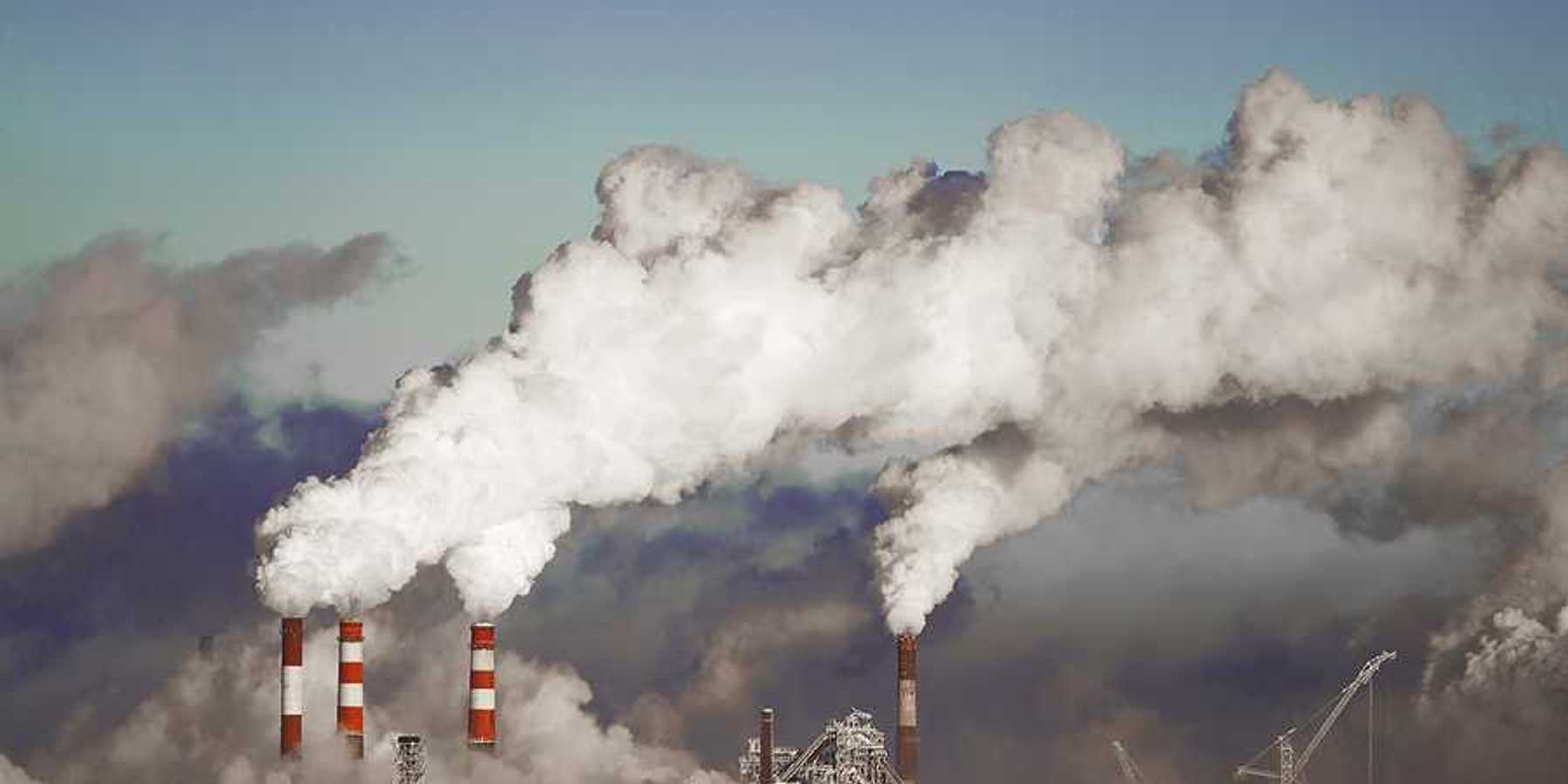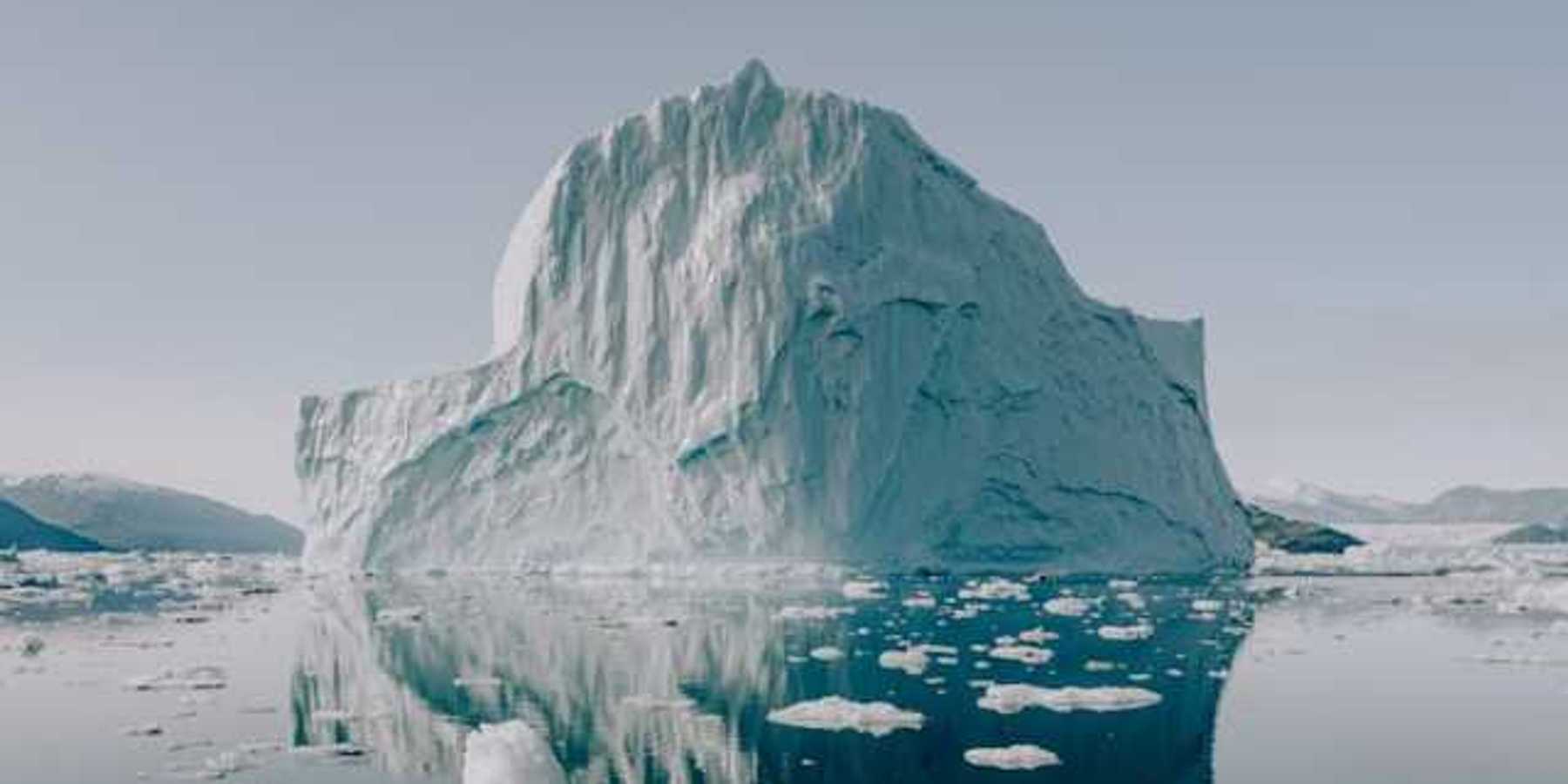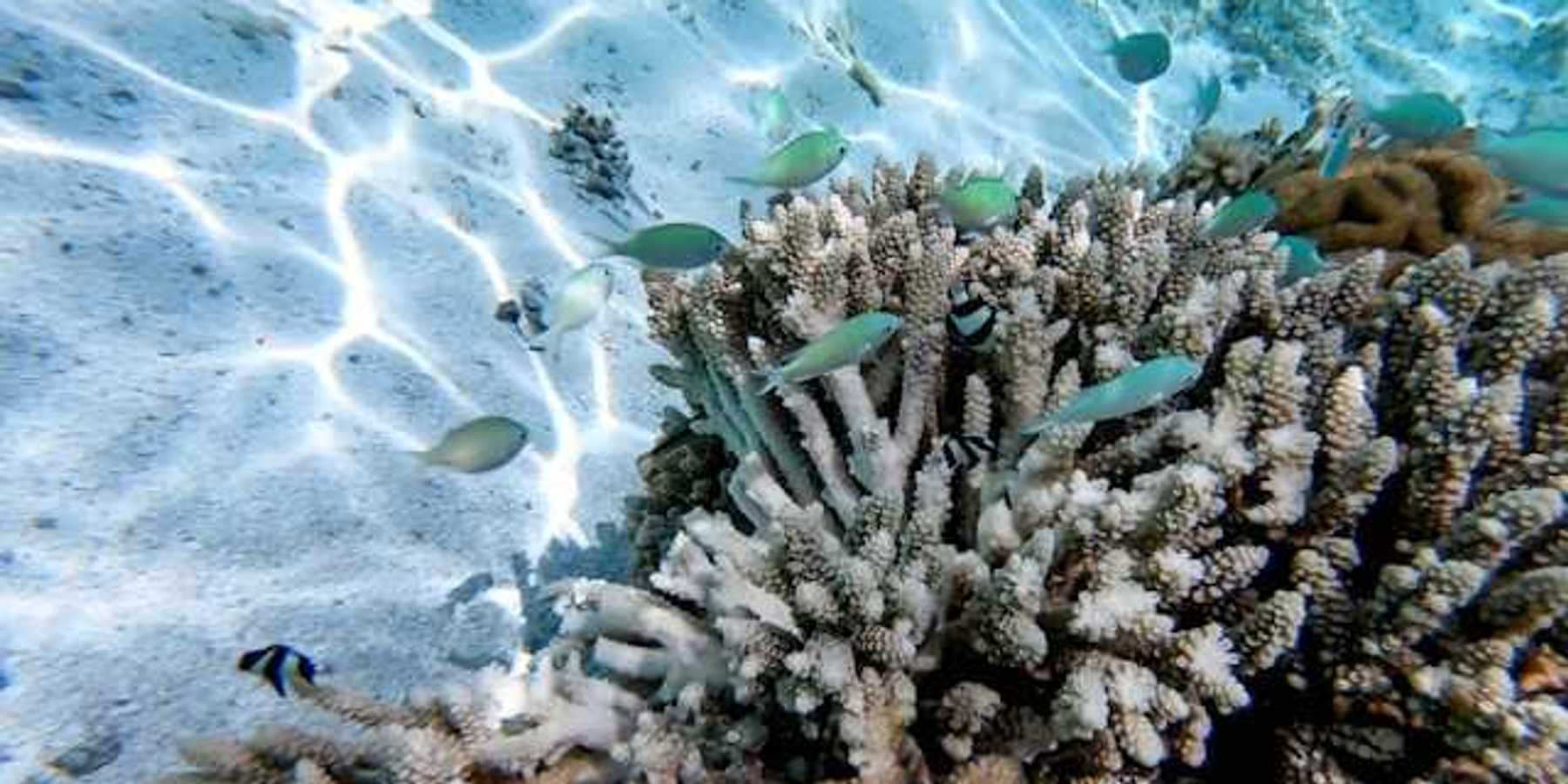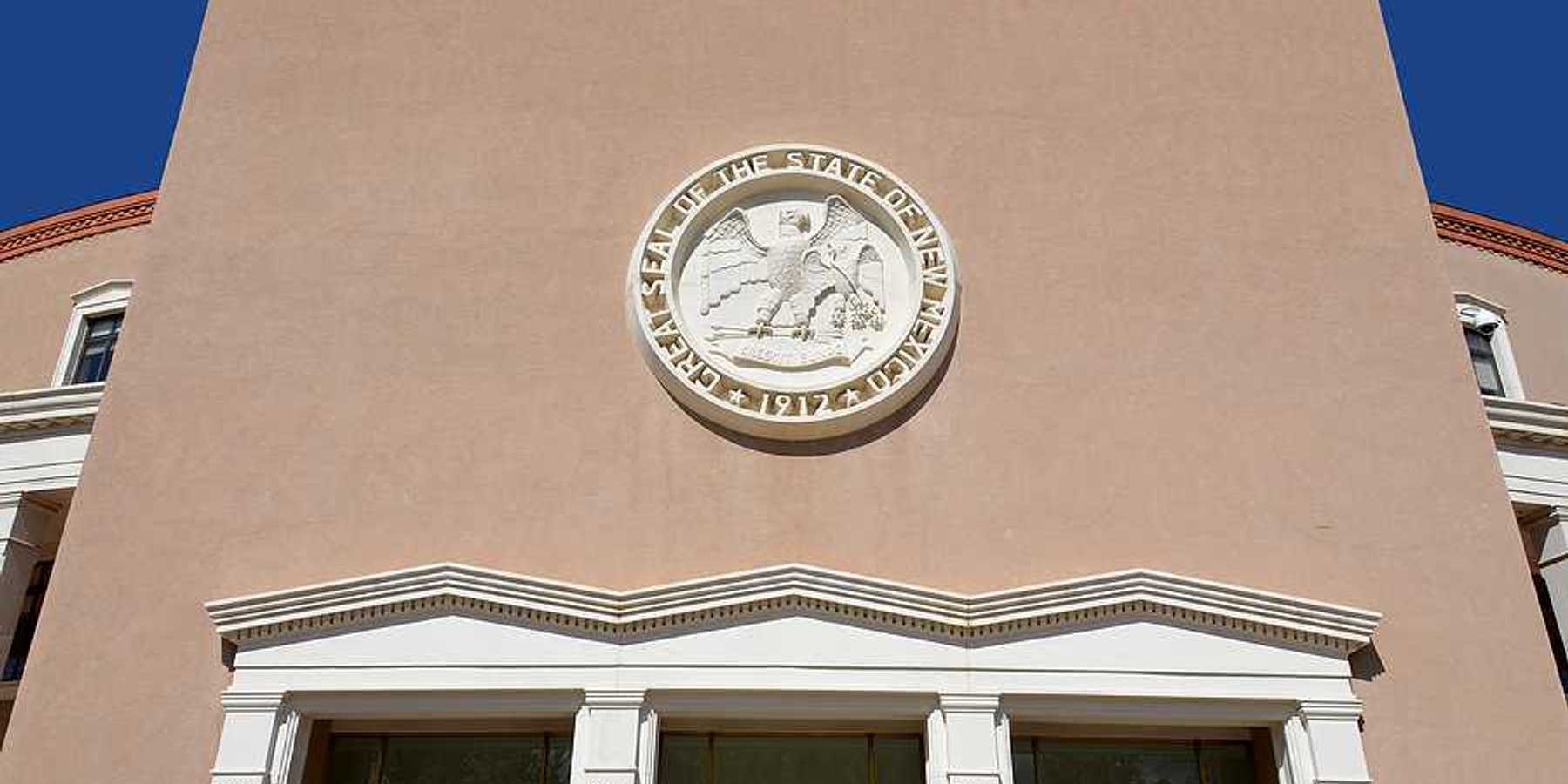Every stage of plastic production and use is harming human health: Report
New report recommends the United Nations Global Plastics Treaty significantly reduce plastic use through aggressive bans and caps, and closer examination of toxic ingredients.
Plastic production is on track to triple by 2050, a potential influx of hazardous materials that the Earth and humans can't handle, according to a new report from the Minderoo-Monaco Commission on Plastics and Human Health.
Experts say the report is one of the most comprehensive to date in compiling evidence of plastics’ risks for humans, the environment and the economy at every stage of their lifecycle. The commission — a group of researchers organized by the Australian foundation Minderoo, the Scientific Center of Monaco and Boston College — found plastics disproportionately harm low-income communities, people of color and children. They’re urging negotiators of the United Nations Global Plastics Treaty to take bold steps, such as capping plastic production, banning some single-use plastics and regulating the toxic chemicals added to plastics. Countries launched the plastics treaty process in March 2022, with the goal of adopting it in 2024.
From production through disposal, plastics impact people and the environment. At fossil fuel extraction sites (most plastics are made from fossil fuels like oil or natural gas) and plastic production facilities workers and surrounding communities are exposed to pollutants that can cause reproductive complications such as premature births and low birth weights, lung cancer, diabetes and asthma, among other illnesses.
Use of plastic products can expose people to toxic chemicals, including phthalates, which are linked to brain development problems in children, and BPA, which is linked to heart attacks and neurological issues. At the end of the plastics supply chain are growing landfills that leach harmful materials into the environment and surrounding communities. These landfills are often found in poor countries, described in the report as “pollution havens.”
“The bottom line is that plastic is not nearly as cheap as we thought it was, it’s just that the costs have been invisible,” Dr. Philip Landrigan, a pediatrician, director at the Boston College Global Observatory on Planetary Health and lead author of the report, told Environmental Health News (EHN). In fact, health-related costs resulting from plastic production were more than $250 billion in 2015, the report found.
He explained that the commission's recommendations for the those discussing the treaty could prevent many of those costs to environmental health and the economy.
Plastics production caps and bans
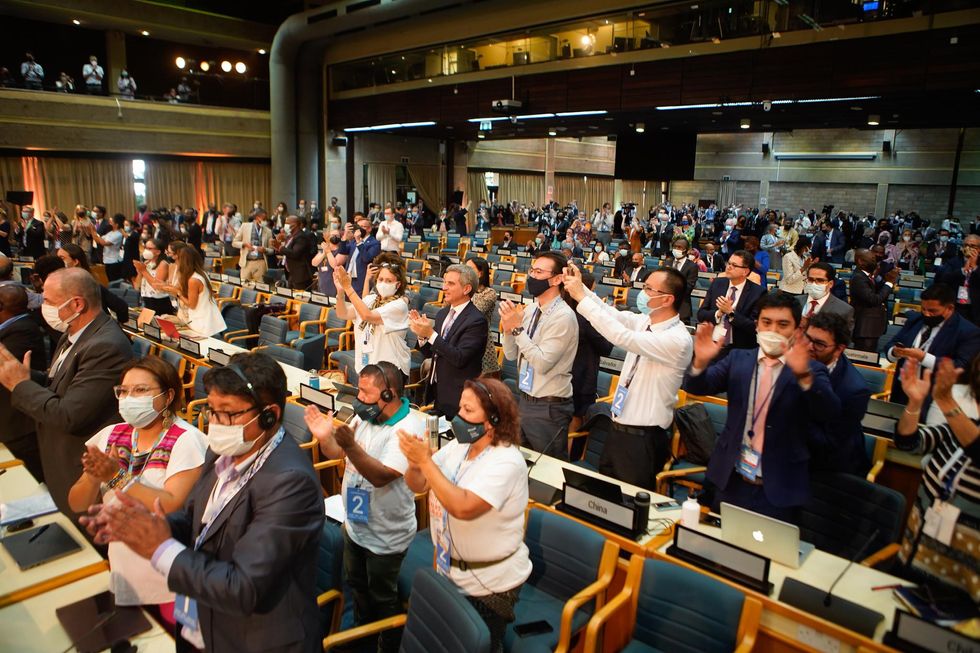
“There needs to be a global cap on plastic production,” Dr. Landrigan said. This cap would allow some plastic production, but prevent the anticipated growth of plastics in the coming years. Production is increasing in part because the fossil fuel industry is looking for new markets as rising demand for renewable energy could decrease the need for fuel, the report says.
The commission hopes countries signing the Global Plastics Treaty will ban avoidable plastics alongside capping production. Roughly 35% to 40% of plastic goes into disposable single-use items, and that fraction is expected to increase.
“We need to get in charge again of why we use plastic,” Jane Muncke, managing director and chief scientific officer at the Food Packaging Forum who was unaffiliated with the report, told EHN.
Plastic waste and health harms
Less than 10% of plastics are reused or recycled, according to the report, and the rest is burned or goes into landfills with devastating human and environmental tolls. Areas where plastic is burned experience elevated pollution and health risks. For example, plastic burning is linked to about 5.1% of lung cancers in cities in India, according to the report. Waste from electronics, with plastic and metal components, creates harmful exposures for the people around them, including roughly 18 million children working with electronic waste, the report says.
For plastics that remain on the market, the commission hopes to see improved health and safety testing of the thousands of chemicals added to plastics. There are more than 2,400 chemicals added to plastics that are considered a high risk, the report says, and many others have never been tested.
“The burden of proof that a chemical is problematic ends up being on society, when people start having health problems,” Andrea Gore, a professor of pharmacology and toxicology at the University of Texas at Austin, told EHN. To change this, the commission proposes testing chemicals for toxicity before they’re added to plastic products that are sold.
Exposure to plastics “falls most heavily on poor people, minorities, Indigenous populations, and of course, kids,” Dr. Landrigan said. He explains that generally, poor countries facing plastic pollution want to see global commitments to reduce plastics and their health harms, while countries that produce plastics might be wary of regulations that reduce the industry’s profits.
“It’ll spin out of control”
The second negotiation meeting for the Global Plastics Treaty will start in Paris in late May. The initial meeting covered procedures and included representatives from 160 countries. It saw conflict between the High Ambition Coalition, made up of 40 countries who advocate for the treaty to include mandatory actions, and others, including the United States, who want the treaty to result in pledges from each country.
For individuals concerned about plastic in their own life, Gore recommends reducing contact with plastic wherever is practical and avoiding heating plastic in the microwave, which can leach toxics.
“Don’t panic, because it is easy to get very alarmed,” she said. ”This document gave me hope and has very strong recommendations.”
Dr. Landrigan points out that while reducing harms from plastic can seem daunting, there are examples of policy changing the environment for the better, such as the Clean Air Act, which reduced U.S. air pollution by 77% from 1970 to 2019. But, he said, “if we don’t act courageously and just let the plastic crisis continue to escalate, it’ll spin out of control.”


